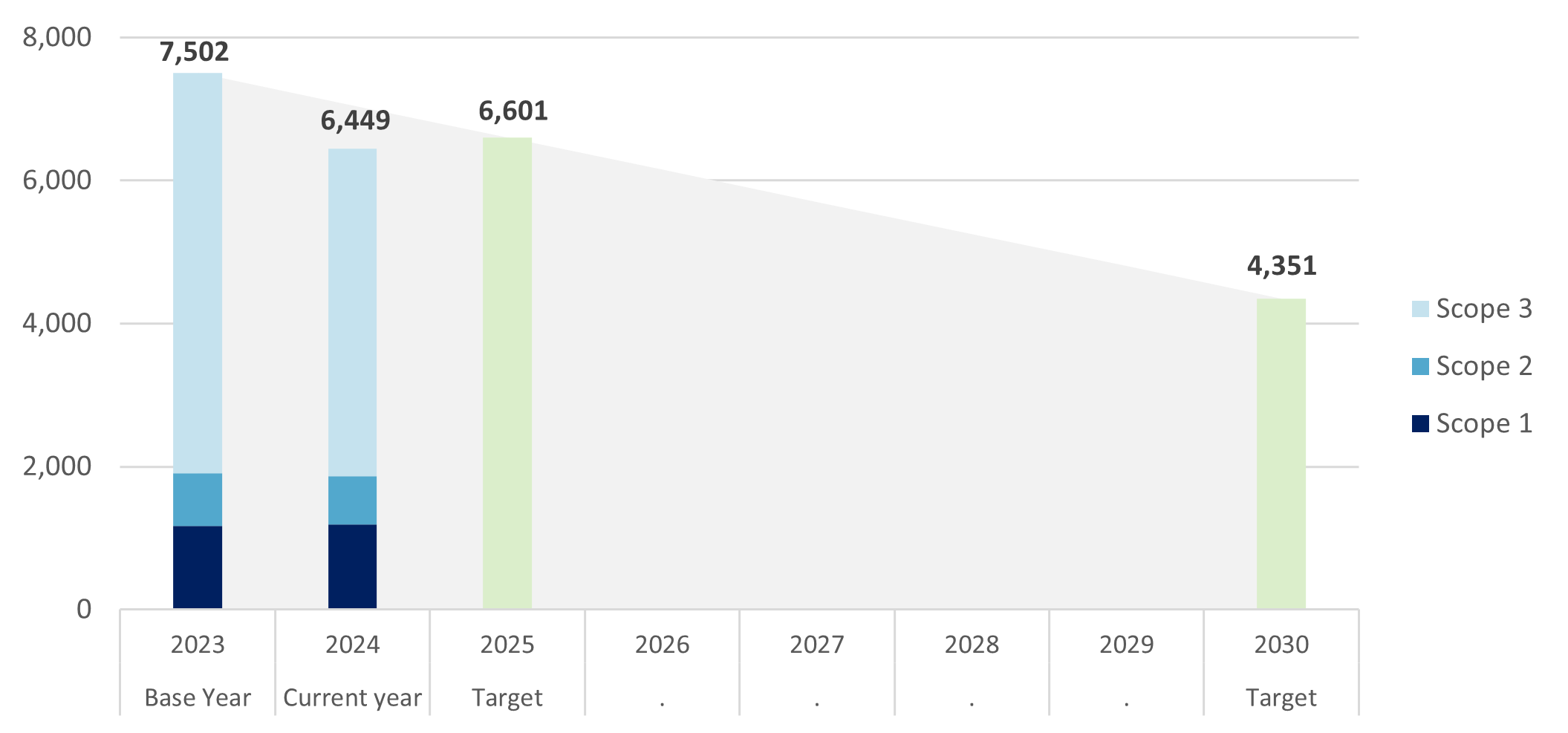Sustainability
In the face of unprecedented climate challenges, we aspire to support the public service in operating sustainably and efficiently achieving reductions in Carbon emissions and cost saving.
Our sustainability vision
We have a holistic view of sustainability, where we define sustainability through three core pou:
Tāngata – Our people
Our commitment to sustainability includes giving our people what they need to flourish. We believe that a sustainable workplace fosters a culture of wellbeing and growth.
Taiao – Our environment
Minimising our environmental impact and where possible. We recognise the interconnectedness of our actions with the world around us.
Pūtea – Our finances
Financial sustainability is a key element of our strategy. We recognise the importance of balancing responsible financial practices with carbon reductions to ensure the longevity and effectiveness of our sustainability initiatives.
As a department, we always put the people of New Zealand at the forefront of our decision making. This is the golden thread that runs through each of these core pou.
Our climate commitment
We stand firmly behind the Government’s pledge to take urgent action on greenhouse gas mitigation and climate change adaptation. Through initiatives like the Carbon Neutral Government Programme (CNGP), we’re actively working to implement strategies to ensure we are meeting the commitments outlined in the CNGP.
Te Tari Taiwhenua has embraced ambitious goals set by the CNGP. By 2025, we aim to reduce our emissions by 12%, with a more substantial target of 42% by 2030 from our base year of 2022/2023.
2024 performance
The Department reports emissions from departmental and non-departmental activities. Departmental activities include the Ministry for Ethnic Communities, a departmental agency hosted by the Department. Non-departmental activities include travel by Members of the Executive and approved accompanying parties and the operation of Ministerial properties.
We re-stated the base year in 2022/23 due to the impacts of COVID on operations.
Departmental and non-departmental activities are separately disclosed as our ability to influence these activities is limited.
In 2023/24, the Department purchased 1,309 carbon credits through Toitū Envirocare (Enviro-Mark Solutions Limited) to partially offset emissions from Ministerial travel.
Summary of 2023/24 Greenhouse Gas (GHG) gross emissions in tCO2e (link opens in Excel)
2024 performance compared to base year and 2025 and 2030 CNGP targets

Emissions from Business Travel, Energy and Freight make up make up 90% of our total Carbon footprint
| Key achievements in 2023/24 | |
|
|
Deliberate focus on decision making around air travel in 2023/24 has resulted in a 29% reduction for departmental air travel. This surpasses the 15% reduction target set for 2023/24 and demonstrates real buy in from kaimahi to reduce emissions. |
 |
Further optimisation of fleet and transition to EV where possible has resulted in a 25% reduction in fuel from fleet. At the start of 2023/24 Te Tari had 74 vehicles (1EV) and are now down to 52 vehicles (32 EV) |
 |
Further reductions in electricity consumption have been achieved through replacement of lighting with LED. 2,150 lights were replaced in 2023/24 with estimated savings of 400kwh of electricity. (total 6,822 lights have been replaced since 2021/22) |
| Upcoming initiatives | |
 |
Focus on property portfolio for future energy efficiency and savings including proactive planning for replacement of end-of-life equipment. HVAC tuning and controlled shutdowns in sites responsible for preservation of collection are also in the pipeline. |
|
|
10% reduction for departmental air travel compared to 2023/24 budget |
 |
Continued optimisation and transition of remaining fleet to EV where possible |
 |
Reducing per passport emissions through engagement with suppliers and deliberate inclusion of carbon criteria in decision making for passport design and shipment. (Passport demand fluctuations influence gross emissions) |
Over and above this, our work will continue to ensure:
- Our kaimahi are clear on the role they have and have the tools, support and motivation to prioritise sustainability.
- Our data, systems and processes support us to use resources efficiently and effectively to minimise environmental harm and deliver long-term social and environmental benefits.
We continue to refine our data collection and reporting processes, enhancing accuracy and transparency. Empowering our kaimahi with knowledge, data and tools helps to guide business decisions with data-driven carbon insights and facilitates deliberate action aimed at reducing carbon. Our policies and processes similarly are continuously reviewed to ensure that carbon considerations are integrated into everyday operations.
For more information on our carbon footprint refer to our Annual Report
Stay informed about the government’s carbon neutral progress:
Tracking progress Carbon Neutral Government Programme (Ministry for the Environment website)
Return to About Internal Affairs
